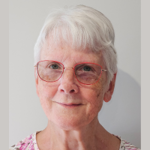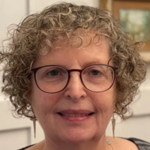RANZCP Fellows recognised in Australia Day 2024 Honours List
30 Jan 2024
Update
The Royal Australian and New Zealand College of Psychiatrists is delighted that five of our Fellows were recognised in the Australia Day 2024 Honours List.
The following Fellows have received Australia Day 2024 Honours:
Officer of the Order of Australia (AO)

Professor Ian Hickie
For distinguished service to psychiatric research and reforms as an advocate for improved mental health care and awareness.
Professor Ian Hickie is the Co-Director of Health and Policy at the University of Sydney’s Brain and Mind Centre and a global leader in mental health research and digital innovations in care. He was an inaugural NHMRC Australian Fellow from 2007 to 2012, then Senior Principal Research Fellow and now is supported at the highest level of personal Investigator Grants until 2027.
He was an inaugural Commissioner on Australia’s National Mental Health Commission from 2012 to 2018, overseeing enhanced accountability for mental health reform and suicide prevention. He is an internationally renowned researcher in clinical psychiatry, with particular reference to digital innovation, youth mental health care and adolescent-onset mood disorders, notably depression and bipolar disorder.
Professor Ian Hickie is the Co-Director of Health and Policy at the University of Sydney’s Brain and Mind Centre and a global leader in mental health research and digital innovations in care. He was an inaugural NHMRC Australian Fellow from 2007 to 2012, then Senior Principal Research Fellow and now is supported at the highest level of personal Investigator Grants until 2027.
He was an inaugural Commissioner on Australia’s National Mental Health Commission from 2012 to 2018, overseeing enhanced accountability for mental health reform and suicide prevention. He is an internationally renowned researcher in clinical psychiatry, with particular reference to digital innovation, youth mental health care and adolescent-onset mood disorders, notably depression and bipolar disorder.
Member of the Order of Australia (AM)

Dr Roger Gurr
For significant service to mental health research and initiatives, and to the community.
Roger has been a tireless advocate for mental health among refugees, innovative treatments for developmental trauma and effective, accessible, and equitable care for all who are in need. At the end of 10 years leadership of Amnesty International, Australian Section, observing the importance of documenting the effects of torture and the need for effective treatment of trauma, he initiated, co-founded in 1988, and is Board Chair of the NSW Service for the Assessment and Treatment of Torture and Trauma Survivors (STARTTS). STARTTS treats around 7,500 traumatised refugees each year and with 20 years of experience of effectively using quantitative EEG assessments and neurofeedback treatment for the most severely traumatised, he is now campaigning for the benefits to spread to the general community. He is convinced that developmental trauma is a clear, dose related, driver of the severity of mental and physical health disorders and now we have the technology to reverse many of the effects, improving life performance and enabling other treatments to work faster and more effectively.
Roger established the first totally community based mental health service in Blacktown from 1980, until Bungarribee House was opened at Blacktown Hospital in 1992. He later led services at Liverpool Hospital before becoming the Director of Mental Health at Westerns Sydney Are Health Service, from 2005-2012. He returned to practice in Blacktown and in 2015 became the Clinical Director of the headspace Early Psychosis service in Western Sydney, provided by Uniting NSW/ACT.
Roger has been a tireless advocate for mental health among refugees, innovative treatments for developmental trauma and effective, accessible, and equitable care for all who are in need. At the end of 10 years leadership of Amnesty International, Australian Section, observing the importance of documenting the effects of torture and the need for effective treatment of trauma, he initiated, co-founded in 1988, and is Board Chair of the NSW Service for the Assessment and Treatment of Torture and Trauma Survivors (STARTTS). STARTTS treats around 7,500 traumatised refugees each year and with 20 years of experience of effectively using quantitative EEG assessments and neurofeedback treatment for the most severely traumatised, he is now campaigning for the benefits to spread to the general community. He is convinced that developmental trauma is a clear, dose related, driver of the severity of mental and physical health disorders and now we have the technology to reverse many of the effects, improving life performance and enabling other treatments to work faster and more effectively.
Roger established the first totally community based mental health service in Blacktown from 1980, until Bungarribee House was opened at Blacktown Hospital in 1992. He later led services at Liverpool Hospital before becoming the Director of Mental Health at Westerns Sydney Are Health Service, from 2005-2012. He returned to practice in Blacktown and in 2015 became the Clinical Director of the headspace Early Psychosis service in Western Sydney, provided by Uniting NSW/ACT.

Professor Anthony Harris
For significant service to mental health as a clinician and academic.
Professor Anthony Harris is a Professor of Psychiatry and the head of the specialty of Psychiatry at the University of Sydney. He is based at Westmead Hospital and the Westmead Institute for Medical Research. He cares for young people with a severe mental illness in a youth mental health service based in Western Sydney Local Health District Mental Health Services.
Professor Harris has over 30 years’ experience in clinical research into the aetiology and treatment of severe mental illness, particularly schizophrenia, and has worked on both psychological and pharmacological treatments. He was the chair of One Door Mental Health prior to its merger with Mind Australia and has continued as a director of Mind Australia a leading NGO in the mental health field.
Professor Anthony Harris is a Professor of Psychiatry and the head of the specialty of Psychiatry at the University of Sydney. He is based at Westmead Hospital and the Westmead Institute for Medical Research. He cares for young people with a severe mental illness in a youth mental health service based in Western Sydney Local Health District Mental Health Services.
Professor Harris has over 30 years’ experience in clinical research into the aetiology and treatment of severe mental illness, particularly schizophrenia, and has worked on both psychological and pharmacological treatments. He was the chair of One Door Mental Health prior to its merger with Mind Australia and has continued as a director of Mind Australia a leading NGO in the mental health field.
Medal of the Order of Australia (OAM)

Dr Johanna Lammersma
For service to the community through a range of roles.
Dr Lammersma became a RANZCP Fellow of the in 1987. After obtaining Fellowship Dr Lammersma worked in the public system until 1993 when she subsequently moved into private practice. Her interest was management of people with Bipolar and Depressive disorders.
Her involvement with the College was varied and impactful. She joined the South Australia Branch Committee in 1987 and became Examination Secretary. She was Chair of the Branch Committee for six years and resigned from the Committee in 2000. She was a General Councillor for six years and Honorary Secretary from 2001 to 2007. During this time Dr Lammersma was a member of the Strategic Development Committee and the College Executive Committee. Further, she was a member of the Board of Professional and Community Relations, Chair of the Community Liaison Committee and Chair of the Australia Private Practitioners Network. Dr Lammersma received the College Medal of Honour in 2009.
Dr Lammersma’s roles outside the College are also noteworthy. She held the position of Director of the Mental Health Professional Network from 2008 to 2016, was a Member of the South Australia Guardianship Board from 2011 to 2014 and then a Member of the South Australia Civil and Administrative Tribunal from 2015 to 2020. She has also been involved with the Mood Disorder Support Group since 1985. This has become Skylight in recent years. Dr Lammersma remains patron of the Mood Disorder Carers Group and became a Life Member of Skylight in 2013. She has also been involved in many community education mental health awareness public speaking occasions. Dr Lammersma also has a long association with a not-for-profit Aged Care facility, having been a Board member and Chair from 1989 to 2020.
Dr Lammersma became a RANZCP Fellow of the in 1987. After obtaining Fellowship Dr Lammersma worked in the public system until 1993 when she subsequently moved into private practice. Her interest was management of people with Bipolar and Depressive disorders.
Her involvement with the College was varied and impactful. She joined the South Australia Branch Committee in 1987 and became Examination Secretary. She was Chair of the Branch Committee for six years and resigned from the Committee in 2000. She was a General Councillor for six years and Honorary Secretary from 2001 to 2007. During this time Dr Lammersma was a member of the Strategic Development Committee and the College Executive Committee. Further, she was a member of the Board of Professional and Community Relations, Chair of the Community Liaison Committee and Chair of the Australia Private Practitioners Network. Dr Lammersma received the College Medal of Honour in 2009.
Dr Lammersma’s roles outside the College are also noteworthy. She held the position of Director of the Mental Health Professional Network from 2008 to 2016, was a Member of the South Australia Guardianship Board from 2011 to 2014 and then a Member of the South Australia Civil and Administrative Tribunal from 2015 to 2020. She has also been involved with the Mood Disorder Support Group since 1985. This has become Skylight in recent years. Dr Lammersma remains patron of the Mood Disorder Carers Group and became a Life Member of Skylight in 2013. She has also been involved in many community education mental health awareness public speaking occasions. Dr Lammersma also has a long association with a not-for-profit Aged Care facility, having been a Board member and Chair from 1989 to 2020.

Dr Vivienne Elton
For service to psychiatry, and to the community.
Dr Vivienne Elton is a psychiatrist, psychoanalyst, past president, and current training analyst of the Australian Psychoanalytical Society, (APAS) who has a private practice in Melbourne. Other senior positions held in APAS include Vice President, Honorary Secretary and Chair of the Scientific committee.
Committed to psychoanalytic education, Dr Elton has written curriculum for the APAS training program, and taught extensively, including infant observation in China. From 2018 to 2020, she was Visiting Professor in the psychotherapy training program at the Wuhan Hospital for Psychotherapy, Huazhong University of Science and Technology, Wuhan, China. She’s currently a member of the International Psychoanalytic Association (IPA) Sponsoring committee for the Wuhan China Study group, assisting in developing an independent training program for psychoanalysts.
Dr Elton is also Chair of the IPA in the Humanitarian Field committees, including the Migrants and Refugees and IPA at the United Nations committees. She helped establish the Crisis and Responders Outreach Service, offering five free therapeutic sessions to front line responders, migrants, and refugees.
Her numerous roles include mentoring psychiatry trainees for the Royal Australian and New Zealand College of Psychiatrists and psychoanalytic candidates, supervising and teaching candidates, psychologists and psychiatrists, and humanitarian activities.
Vivienne was President of the National Association of Practising Psychiatrists and is currently Vice President.
She has presented and chaired seminars and panels at conferences for APAS, the IPA and the Chinese Study group of Wuhan. She was first editor for “Trauma, Flight and Migration – Psychoanalytic Perspectives”, published by Routledge in 2022, and has published in areas related to infant observation and medical politics in Australia.
Dr Vivienne Elton is a psychiatrist, psychoanalyst, past president, and current training analyst of the Australian Psychoanalytical Society, (APAS) who has a private practice in Melbourne. Other senior positions held in APAS include Vice President, Honorary Secretary and Chair of the Scientific committee.
Committed to psychoanalytic education, Dr Elton has written curriculum for the APAS training program, and taught extensively, including infant observation in China. From 2018 to 2020, she was Visiting Professor in the psychotherapy training program at the Wuhan Hospital for Psychotherapy, Huazhong University of Science and Technology, Wuhan, China. She’s currently a member of the International Psychoanalytic Association (IPA) Sponsoring committee for the Wuhan China Study group, assisting in developing an independent training program for psychoanalysts.
Dr Elton is also Chair of the IPA in the Humanitarian Field committees, including the Migrants and Refugees and IPA at the United Nations committees. She helped establish the Crisis and Responders Outreach Service, offering five free therapeutic sessions to front line responders, migrants, and refugees.
Her numerous roles include mentoring psychiatry trainees for the Royal Australian and New Zealand College of Psychiatrists and psychoanalytic candidates, supervising and teaching candidates, psychologists and psychiatrists, and humanitarian activities.
Vivienne was President of the National Association of Practising Psychiatrists and is currently Vice President.
She has presented and chaired seminars and panels at conferences for APAS, the IPA and the Chinese Study group of Wuhan. She was first editor for “Trauma, Flight and Migration – Psychoanalytic Perspectives”, published by Routledge in 2022, and has published in areas related to infant observation and medical politics in Australia.
More news & views
The College is continuing to work towards meeting the standards, conditions and recommendations iden...
The College is inviting Fellows willing to contribute 3–4 hours every three months to become Certifi...
United in concern about the current state of the health system, 10 medical colleges came together to...